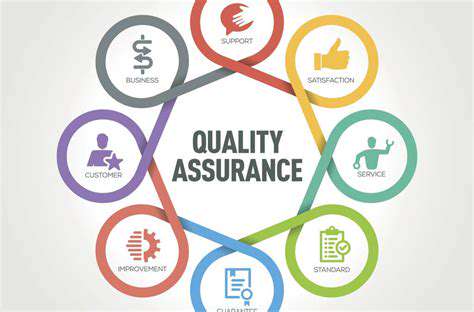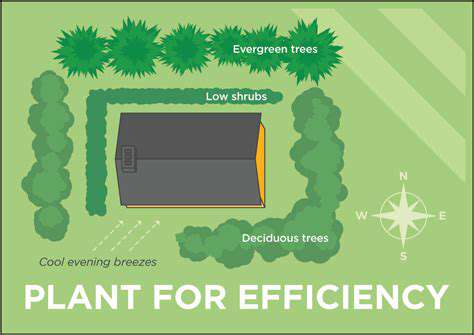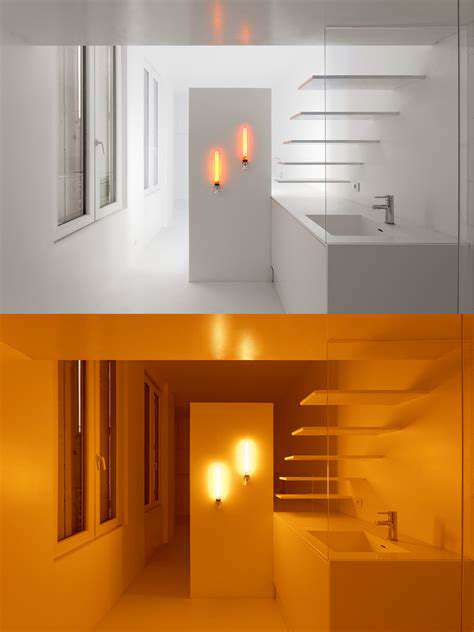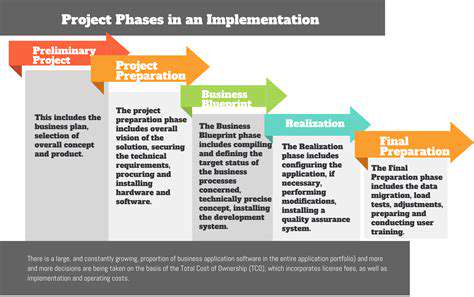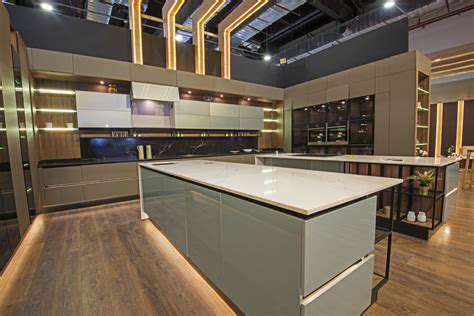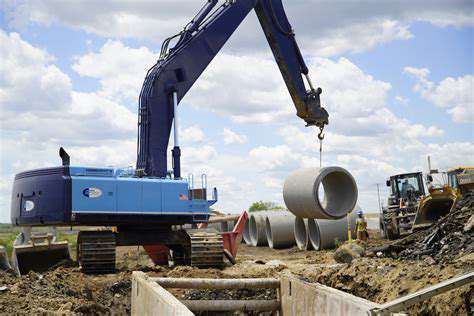Expert Theme Design Solutions for Short Term Rental Homes

Leveraging Technology for Enhanced Guest Experiences
Streamlining Check-in and Check-out Processes
Hotels are revolutionizing guest experiences by adopting digital check-in and check-out systems. Guests appreciate the ability to handle paperwork and access room details online, avoiding long lines at reception desks. This modern approach lets staff dedicate more time to personalized service, anticipating needs before guests even ask. Pre-arrival communication through these platforms allows visitors to plan activities and review important details before stepping foot on property, creating a smoother transition into their stay. The digital check-out feature proves equally valuable, eliminating last-minute hassles and leaving guests with positive final impressions.
Mobile integration takes convenience to another level. With smartphones serving as room keys and information hubs, travelers navigate facilities effortlessly. Tech-savvy guests particularly value having everything they need in their pocket, from dinner reservations to spa schedules. This digital transformation not only saves time but minimizes human errors common in traditional paper-based systems. The result? Happier guests and more efficient operations.
Personalized Recommendations and Interactive Experiences
Forward-thinking hotels analyze guest data to craft customized suggestions for dining, entertainment, and local exploration. These tailored recommendations appear on in-room tablets, mobile apps, or through targeted emails. Predictive analytics take personalization further, anticipating preferences before guests articulate them. This attention to detail transforms standard accommodations into curated journeys designed around individual tastes and interests.
Interactive technology brings destinations to life. Virtual tours showcase property amenities while augmented reality apps reveal hidden neighborhood gems. Digital maps with built-in recommendations help guests discover local culture beyond tourist hotspots. These immersive tools create memorable experiences that distinguish properties from competitors. Interactive digital signage throughout lobbies and hallways displays real-time event information, weather updates, and rotating local artwork - keeping guests engaged and informed throughout their stay.
The true power of these technologies lies in their ability to foster genuine connections. When implemented thoughtfully, digital tools enhance rather than replace human interaction. Staff members armed with guest preference data can deliver unexpectedly thoughtful service, while interactive elements provide entertainment and education between personal encounters. This balanced approach creates stays that feel both cutting-edge and warmly personal.
Sustainable Practices and Eco-Conscious Design

Understanding Sustainable Practices and Their Importance
Sustainable practices represent our commitment to meeting present needs without jeopardizing future generations' resources. These methods span responsible resource allocation, waste minimization, and environmentally sound production. The hospitality industry faces increasing pressure to reduce its substantial environmental footprint through innovative conservation strategies. Thoughtful implementation helps combat pressing global issues like climate change while preserving biodiversity for years to come.
The Role of Eco-Consumers in Promoting Sustainability
Environmentally aware travelers drive significant change through their purchasing power. Their preference for green accommodations pushes hotels to adopt earth-friendly operations and transparent reporting. This consumer segment demands visibility into sustainability claims, rewarding genuine efforts with loyalty and positive reviews. As eco-consciousness grows, properties must substantiate their environmental commitments with verifiable actions rather than superficial claims.
Innovations Supporting Eco-Friendly Solutions
Breakthrough technologies enable remarkable sustainability advancements in hospitality. Solar panel installations, smart water systems, and plant-based amenity lines demonstrate how innovation meets environmental responsibility. These solutions often yield financial benefits over time, proving that ecological and economic interests can align beautifully. Early adopters gain competitive advantages while contributing to meaningful global change.
Challenges in Implementing Sustainable Practices
Transitioning to sustainable operations presents hurdles including upfront investment costs and operational adjustments. Some guests resist changes to familiar comforts, while staff may require retraining for new procedures. Successful properties address these challenges through clear communication about environmental benefits and guest participation opportunities. Government incentives and industry certifications help offset initial expenses while validating sustainability claims.
Future Trends in Eco-Responsibility
The sustainability movement continues gaining momentum with circular economy models and carbon-neutral initiatives leading the charge. Properties that integrate environmental responsibility into their core identity will thrive as traveler expectations evolve. Emerging monitoring technologies will provide precise data on conservation efforts, enabling continuous improvement and transparent reporting. The hotels embracing this shift today position themselves as industry leaders for tomorrow.
